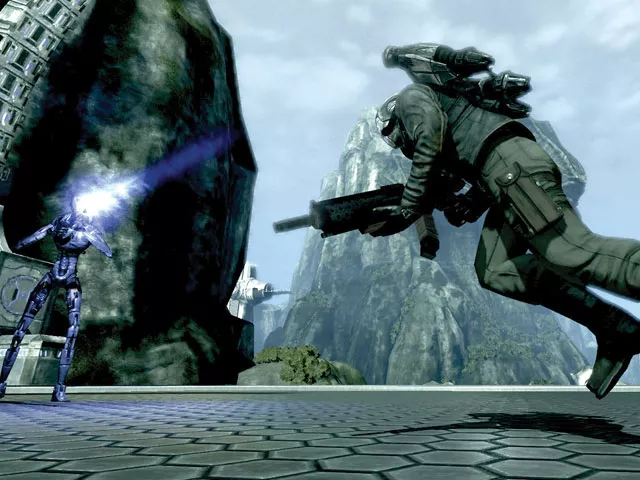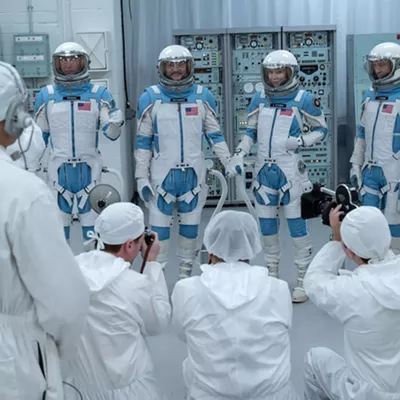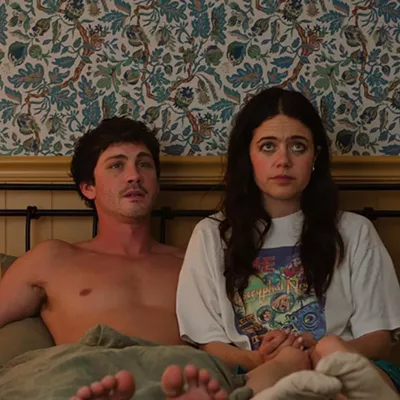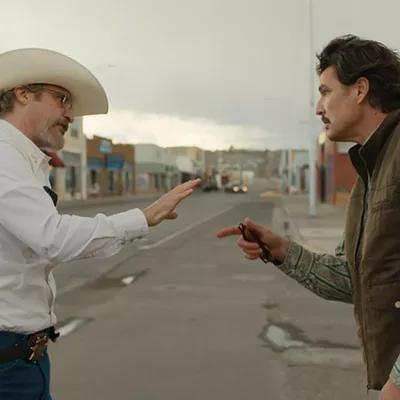As the star of the Uncharted series, Nate Drake is the classic action hero, climbing into peril, leaping from peril and exploring perilous tropical locations moments before they crumble into rubble.
As the star of Dark Void, Will is a thin, carbon copy of Nate Drake.
He doesn’t so much climb into peril as he clambers into it, followed by a sort of tumbling out again. His long-lost location is an Adventureland within the Bermuda Triangle — as generic as magic kingdoms come.
Copycat games are a videogame inevitability. A single hit often results in years of thinly disguised discount versions. Uncharted hasn’t been a phenomenon for long enough to merit that kind of replication, but it has already earned the distinction of inspiring its first truly terrible copycat — Dark Void.
Dark Void is the sort of poorly rendered job that publisher Capcom made its reputation avoiding. Instead of that company’s trademark slickness, Dark Void sports lifeless and fl at images. The entire slope of a hillside looks as though it were papered with repeat prints of Monet’s “Water Lilies.” Trees grow halfway planted in the ground, and even the sturdiest trunk can be slipped through as though it were mist. Will himself leaps up and down with a gentle floating motion, moving at the same speed going down and up as though gravity were having a lazy day.
The camera, which resolutely follows Will through his adventures, tags along behind him even when he jumps, dipping down and then popping back up. Part of the technique that makes the fictional worlds of videogames seem believable is a persistence of the images — the rocks and trees stand stable in space, even as a character moves. But a game that makes them jump with the character evokes a nervous, shuddering environment.
Enemies, consisting mainly of aliens and robots, run around attacking haphazardly, skittering behind cover, then returning to stand out in the open during firefights. The foes that do seem to be programmed with the rudiments of strategy take cover and then pop up from the same spot repeatedly, turning the shooting matches into bouts of Whac-A-Mole.
Dumbed-down firefights are joined by even dumber-downed climbing puzzles. I don’t actually have to seek out handholds and ledges while clambering through Dark Void, I just have to seek out the places where I’m shown a big pink symbol that tells me what button I can push to grab the ledge. It’s so simplified that if Uncharted 2 — which relied extensively on climbing puzzles — had done the same, it would have been finished in two hours and never become a classic.
THE GOOD: Dark Void takes place in a World War II-era, Rocketman-filled universe with Nikolai Tesla. If the designers had made a good game with the same features, it might have been worth playing.
THE BAD: Dark Void attempts a go-anywhere style of rocket-pack flight that turns out to be wonkier than even the herky-jerky walking and running. Will fl ops through space like a toy. And even in the vastness of space, he still manages to get caught in fiddly rock formations while the camera tangles in foliage.
THE BOTTOM LINE: Avoid Dark Void.













